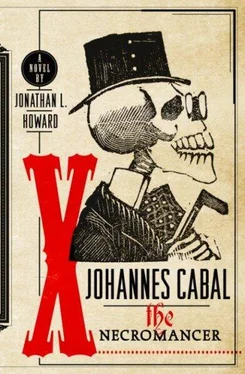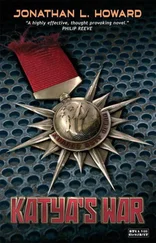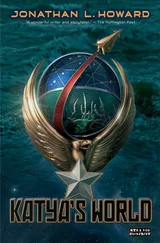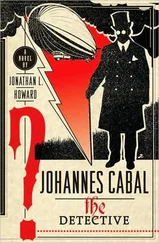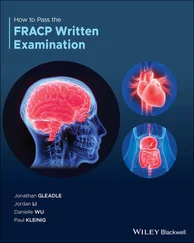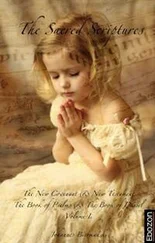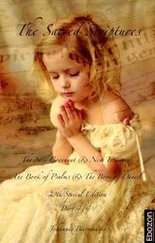“But don’t be disappointed! Throughout the evening, we’ll be offering other spot prizes based on your ticket number, so … so …” There was only one thing left to say. “Roll up! Roll up! Come one! Come all! Tell your friends that you were brave enough, that you were bold enough, to enter the House of Medical Monstrosity!”
And so, its welcoming smile widening until the fangs showed, the carnival began its first night.
CHAPTER 5
in which Cabal plays with dolls and horst broadens his vocabulary
Fairs and carnivals are not, by nature, profound experiences. They are there to amuse and distract, to draw the citizens from their grey workaday lives into something that has a flavour of the extraordinary. The lights dazzle, the sideshows amaze, the rides excite, the stalls frustrate, but all pleasantly. It is a jolly pickpocket and a charismatic confidence trickster. The rubes … the suckers … the customers know full well that their wallets and purses are slowly deflating every second that they walk upon the fairground, but the customers … the suckers … the rubes would have it no other way. They do not mind being taken for a ride, as long as the ride is fun. This is the nature of fairs and carnivals.
The Cabal Bros. Carnival was something special, though. Something unusual. Something different. Whereas a normal carnival is a shallow, ephemeral experience intended to take average persons out of the mundane world and fool them — for as long as they are prepared to be fooled — into believing that fun really does travel the highways and byways as a bolus of giggles and glee, the Cabal Carnival wore that belief as a mask. It was, however, merely a facsimile of a façade. Behind the wide, welcoming smile was a mantrap baited with desires and delight, pleasures and popcorn, hedonism and hot dogs of dubious content. Satan, who was after all something of an authority in matters of temptation, was quite right when he had said that the carnival lowered the defences of those who walked through its gate. Everybody comes to the fair to have a good time in the full expectation of being ripped off at some point. All that was different here was the scale of the loss.
But all this is theory. Examples are more salutary.
* * *
“He’re here to have fun.” It was said in a tone that indicated that the alternative was a split lip.
Rachel hoped it wouldn’t come to that; the last one had only just healed. “I am having fun,” she said, and smiled. It wasn’t a very convincing smile, but it showed sufficient compliance for Ted to uncurl the fist that had unconsciously formed at his side. His hands spent a lot of their time balled.
He looked around. Before them spread the carnival, a whirling chaos of sound and light and smells that promised so much. Calliope, neon, and the scent of fresh popcorn created a new world: a place of wonders and excitement and fun. Yes, its true function was to tempt to contentiousness, to blasphemy, argumentation, and murder, but you could also win coconuts.
Ted regarded it all with the sour expression of a man who expects disappointment, and usually deals with it by putting the source in the hospital. He held out his hand towards Rachel, and she took it quickly, allowing herself to be drawn through the gates and onto the fairground proper. As they walked through, they passed the farmer on whose land the carnival was set up.
He stood, thumbs hooked into his waistcoat pockets, looking very pleased with himself, smiling and nodding at everybody who paused at the gate to buy tickets as if he owned the carnival, too. In truth, he was keeping a headcount, partially to make sure that he wasn’t cheated out of his rent, but mainly for the sheer pleasure of running the steadily increasing number through some simple mental arithmetic and revelling in the hefty sum that popped out starboard of the equals sign. He would doubtless have been less happy if he had known what was waiting for him in the shrouded future, at a time shortly after he left his deathbed. If he’d been under the impression that the Ministry of Agriculture was addicted to unnecessary paperwork, first contact with Arthur Trubshaw would set things in perspective.
In the wide paths that led between attractions, Ted and Rachel walked. Had a curious bystander watched them for a few minutes, he would have observed that it was not immediately obvious why the couple had come at all.
Rachel seemed to be walking through a partial version of a carnival. Most of the time she seemed guarded and anxious, and though occasionally she would suddenly react pleasurably to something that caught her eye, it would quickly fade from her face, driven out by a shadow of conditioned ambiguity. She had long since learned not to have opinions, and if she couldn’t help but have one, she was careful not to express it around Ted. After all, he might disagree. The ambiguity extended to her appearance, a gallant but hopeless attempt to be pretty for Ted, and nondescript for all other men. She simply ended up being a smudge of a woman, in nice but dull clothes, in nice but dull colours. She wore too much make-up — eye-shadow and concealer — that concealed her natural prettiness, and something else, too.
Ted was also a figure of uncertain purpose. He was at a funfair, but he was not having fun. He had a girlfriend, but she was not his friend. He did not walk with her, but instead herded her like a grudging sheepdog, alert for any possible threat to his ownership. He was caught in the conflict between showing her off and the real possibility that some man might actually look. If the curious bystander had continued to watch for a moment too long, he would certainly have found himself with Ted, wide-eyed and mouth-breathing, Sunday-clothed and poorly hair-cut, standing toe-to-toe and demanding to know what the curious bystander found so fascinating about his girlfriend.
They washed between stalls, he fraught with suspicion, she with shifting apprehensions, unaware that they were objects of attention for a curious bystander.
Horst Cabal, invisible to all but the most perspicacious of cats or suspicious of dogs, watched them go by. Rendering himself imperceptible by men and animals was one of the little tricks that came with being less alive than most, along with his speed, strength, and — when need be — mesmerism. His perceptive eye and sympathetic heart, however, were all his own. He watched and he listened to their stilted conversation — his all statements, hers all prevarication — and he drew his conclusions.
He waited until they were out of sight before allowing himself to seep back into visibility, and stood quietly, an expression of speculative contemplation on his face. Then he blurred and the place was empty again.
* * *
Johannes Cabal was just finishing his first session as a sideshow barker when Horst found him. Horst sprang into being in full sight of several customers, who all performed simultaneous shocked jumps and squeals.
“My brother,” Cabal explained to them. He smiled with all the warmth of a dollhouse oven. “Rather a gifted magician.” He waited for the subdued and not entirely convinced crowd to dissipate before turning angrily to Horst. “What are you trying to do? It doesn’t take much to scare these sheep off.”
Horst passed him a bottle he had picked up in his rapid trip from there to here. Remarkably, its contents had survived the transit. “Drink this,” he said, unmoved by Cabal’s anger. “You need to save your voice for your next session.”
Cabal took the bottle testily and swigged from it. There was a moment’s pause, just long enough for Cabal’s expression to change from testy to horrified revulsion. He spat the liquid violently onto the grass like a man who has got absent-minded with the concentrated nitric acid and a mouth pipette. He glared at Horst as he took off his spectacles and wiped his suddenly weeping eyes. “Disinfectant? You give me disinfectant to drink?”
Читать дальше
